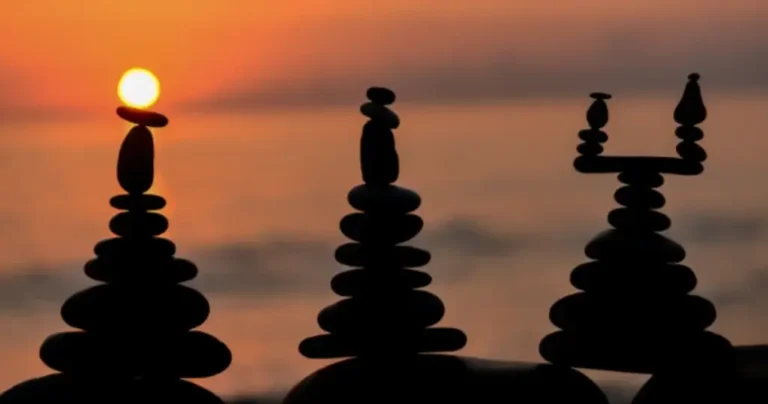6 Types of Love That Aren’t Romantic: Find Happiness & Inner Peace
Love. A word that evokes a kaleidoscope of emotions, from the exhilarating rush of passion to the comforting warmth of friendship. Forget the idea of love being like a single switch you flip on or off. It’s more like a huge, beautiful park with winding paths.

Picture love not as a single love song, but as a whole music festival! There’s a stage for every kind of love, from the head-over-heels mosh pit to the chill acoustic corner. By checking out these different love styles, inspired by what the ancient Greeks pondered, we can figure out what kind of music resonates with us and how to find our own harmonious relationships along with inner peace.
Here are the 6 types of love that are not romantic:
Eros: The Fire of Passion
Eros embodies passionate, romantic love.Imagine that first spark with someone new – that feeling like butterflies are fluttering around in your stomach! This exciting, intense kind of love is all about that initial chemistry. It’s like having a ton of fun together, feeling totally into each other, and maybe even getting a little carried away (in a good way!).However, the obsessive nature of Eros, if unchecked, can lead to anxiety and insecurity, disrupting inner peace.
Finding Peace with Eros: Channel your passion into building a strong emotional foundation. Open communication and mutual respect become crucial to ensure the flame of Eros doesn’t consume the relationship.
Ludus: The Playful Dance
Ludus represents a playful and noncommittal approach to love. It’s about enjoying the thrill of the chase and the excitement of casual encounters. While Ludus can bring joy and lightheartedness, a lack of emotional depth can leave one feeling unfulfilled and yearning for deeper connection.
Finding Peace with Ludus: Recognize the limitations of playful love. If a desire for something more substantial arises, be open to exploring deeper emotional connections.
Storge: The Comforting Embrace of Friendship
Storge is the love that blossoms from familiarity and shared experiences. Then there’s the love you have for your family and those ride-or-die friends. It’s like having your own personal cheer squad, always there for you no matter what. You can be your complete goofy self around them, and they still love you (probably even because of it!). This kind of love feels like a warm hug, a shoulder to cry on, and the knowledge that you always belong, no matter what life throws your way.
Finding Peace with Storge: Nurture your friendships. Invest time and effort in maintaining strong connections with those who bring comfort and stability to your life.
Pragma: The Love of Logic
Pragma is a practical approach to love, emphasizing compatibility, shared goals, and a stable foundation. It’s about building a life together based on mutual respect and understanding. While Pragma offers security and stability, an overemphasis on practicality can stifle emotional intimacy, potentially hindering inner peace.
Finding Peace with Pragma: While practicality is important, don’t neglect the emotional aspects of love. Make space for romance, spontaneity, and expressions of affection to cultivate a truly fulfilling relationship.
Mania: The Possessive Storm
Mania is the unhealthy side of love, characterized by possessiveness, jealousy, and obsessive control. It can be suffocating and destructive, leading to anxiety, fear, and a complete breakdown of inner peace.
Finding Peace (and Distance) with Mania: Mania is not love. If you find yourself in a controlling or possessive relationship, prioritize your well-being and seek help to establish healthy boundaries.
Agape: Selfless Love
Agape embodies unconditional, selfless love. It’s the love of a parent for their child or the unwavering compassion one feels for humanity. Agape is about giving without expecting anything in return. This form of love, while immensely rewarding, can be draining if not balanced with self-care and healthy boundaries.
Finding Peace with Agape: While giving is important, prioritize your own needs as well. Practice self-compassion and set boundaries to avoid burnout.
The Symphony of Love
These six types of love are not mutually exclusive. In fact, most relationships are a blend of several styles. The key to inner peace lies in understanding your dominant love style and how it interacts with your partner’s. By embracing the strengths of each type and addressing their potential pitfalls, you can cultivate a love that nourishes your soul and fosters inner peace.
Embrace the Journey
Love is a beautiful, complex journey. By understanding the different facets of love, you can navigate relationships with greater awareness and build connections that bring you joy and fulfillment. Remember, inner peace is not a destination, but a continuous process. As your understanding of yourself and your love styles evolves, so too will your ability to create and maintain healthy, loving relationships.
Beyond the Basics: Exploring Additional Dimensions of Love
The six Greek concepts provide a strong foundation, but the landscape of love is even richer. Here are some additional aspects to consider:
• Philia: Often translated as “friendship love,” Philia goes beyond Storge. It’s a love built on shared values, intellectual connection, and mutual respect. It fosters a sense of camaraderie and deep understanding.
• Philautia: Often misunderstood as selfishness, Philautia is about healthy self-love. It’s the foundation for all other forms of love. Without self-acceptance and a sense of self-worth, it’s difficult to truly love others.
• Xenia: This concept refers to the hospitality and kindness shown to strangers. It’s a reminder that love can extend beyond our immediate circle and contribute to a more compassionate world.
Love Languages: Speaking the Dialect of Your Heart
The concept of love languages, popularized by Gary Chapman, adds another layer of understanding. These are the ways we express and receive love: words of affirmation, acts of service, receiving gifts, quality time, and physical touch. Identifying your own and your partner’s love languages can significantly improve communication and deepen connection in your relationships.
Finding Your Balance: Cultivating Inner Peace Through Love
Inner peace thrives in a life enriched by healthy love. Here are some tips to cultivate a balanced approach:
• Self-Awareness: Reflect on your dominant love styles and how they influence your choices. Are you drawn to partners who mirror your style, or do you crave a balance?
• Communication: Openly discuss expectations and desires with your partner. Understanding each other’s love languages can bridge communication gaps.
• Healthy Boundaries: Set clear boundaries to protect your well-being, especially in relationships prone to possessiveness or codependency.
• Personal Growth: Continue to learn and grow as an individual. The more fulfilled you are as a person, the more you have to offer in your relationships.
Love is a lifelong journey, filled with both exhilarating highs and inevitable challenges. By understanding the different facets of love and fostering self-awareness, you can navigate this journey with greater clarity and purpose. Let the various colors of love paint a vibrant tapestry of your life, leading you towards a more peaceful and fulfilling existence.







